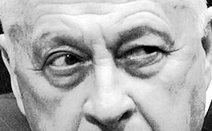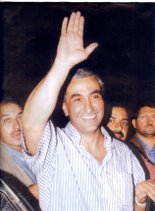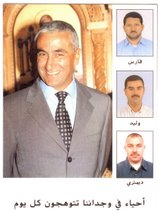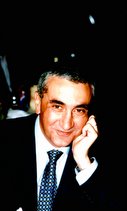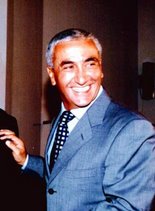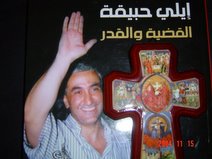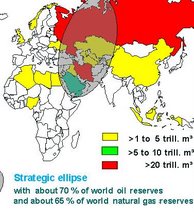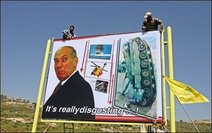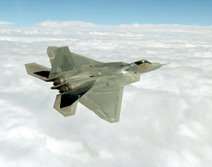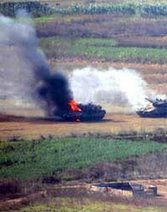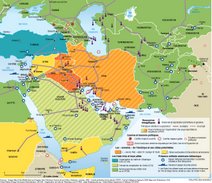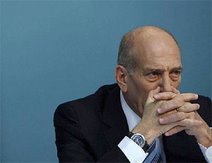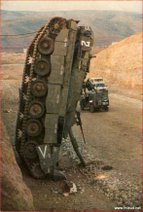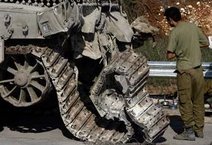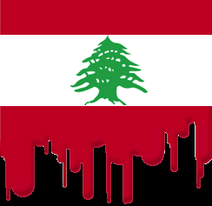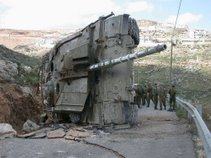

------------------------------------------------------------------------------------
CIA-Mossad plot against Iran?
Details of a CIA-Mossad plot against the Fertile Energy Crescent...?
CIA and Mossad, had traditionally been at odds in the Middle East, for
quite a while in the seventies, 80s etc., However, in the Mid-90s there
has been a Huge Transformation of the "culture" in Both Agencies,
with the Advent of Bibi Netanyahu and the PNAC Gang of Killers...,
who have devised a vast and ambitious plan, to simply control the
world's Energy resources, and claim the Mantra of the Sole Mega-Super
Power, following the disastrous downfall of the Old Soviet Empire, and
the CIA inspired coup in Russia... with Geidar and Yeltsin in cahoots?
Putin has put an end to this monstrous Charade...?
The Bush administration is prolonging the hunting season against
journalists. The latest victim is James Risen, The New York Times
reporter for national security and intelligence affairs. About three
months ago, a federal grand jury issued a subpoena against him,
ordering Risen to give evidence in court. A heavy blackout has been
imposed on the affair, with the only hint being that it has to do with
sensitive matters of "national security."
But conversations with several sources who are familiar with the
affair indicate that Risen has been asked to testify as part of an
investigation aimed at revealing who leaked apparently confidential
information about the planning of secret Central Intelligence Agency
and Mossad missions concerning Iran's nuclear program.
Risen included this information in his book, "State of War: The Secret
History of the CIA and the Bush Administration," which was published
in 2006. In the book, he discusses a number of ideas which he says
were thought up jointly by CIA and Mossad operatives to sabotage
Iran's nuclear capabilities.
One of these ideas was to build electromagnetic devices, smuggling
them inside Iran to sabotage electricity lines leading to the
country's central nuclear sites. According to the plan, the operation
was supposed to cause a series of chain reactions which would damage
extremely powerful short circuits in the electrical supply that would
have led to failures of the super computers of Iran's nuclear sites.
According to the book, the Mossad planners proposed that they would be
responsible for getting the electromagnetic facilities into Iran with
the aid of their agents in Iran. However, a series of technical
problems prevented the plan's execution.
Another of the book's important revelations, which made the
administration's blood boil about James Risen, appeared in a chapter
describing what was known as Operation Merlin, the code name for
another CIA operation supposed to penetrate the heart of Iran's
nuclear activity, collect information about it and eventually disrupt it.
Operation Merlin
The CIA counter proliferation department hired a Soviet nuclear
engineer who had previously, in the 1990s, defected to the United
States and revealed secrets from the Soviet Union's nuclear program.
His specialty was in the field of what is called weaponization, the
final stage of assembling a nuclear bomb.
The scientist was equipped with blueprints for assembling a nuclear
bomb in which, without his knowledge, false drawings and information
blueprints were planted about a nuclear warhead that was supposedly
manufactured in the Soviet Union. The plan's details had been
fabricated by CIA experts, and so while they appeared authentic, they
had no engineering or technological value.
The intention was to fool the scientist and send him to make contact
with the Iranians to whom he would offer his services and blueprints.
The American plot was aimed at getting the Iranians to invest a great
deal of effort in studying the plans and to attempt to assemble a
faulty warhead. But when the time came, they would not have a nuclear
bomb but rather a dud.
However, Operation Merlin, which was so creative and original, failed
because of CIA bungled planning. The false information inserted into
the blueprints were too obvious and too easily detected and the
Russian engineer discovered them. As planned, he made contact with the
Iranian delegation to the International Atomic Energy Agency in Vienna
and handed over to them, also as planned, the blueprints.
But contrary to the CIA's intention, he added a letter to the
blueprints in which he pointed out the mistakes. He did not do this
with ill intent or out of a desire to disrupt the operation and harm
his operators. On the contrary, he did so out of a deep sense of
mission and in order to satisfy his American operators. He hoped that
in this way he would simply increase the Iranians' trust in him and
encourage them to make contact with him for the good, of course, of
his American operators.
The result was disastrous. Not only did the CIA fail to prevent the
Iranians in their efforts to enhance their nuclear program, this
operation may also have made it possible for them to get their hands
on a plan for assembling a nuclear warhead.
Freedom of the press
In Israel, military censorship would have prevented the publication of
details such as these. But in the U.S., where the principle of freedom
of the press is sacred and anchored in the constitution, there is no
compulsory and binding censorship. There is, however, an expectation
there that the press will show responsibility. This expectation has
increased in recent years, particularly with the conservative Bush
administration and in the wake of the events of September 11, 2001 and
the wars in Afghanistan and Iraq.
Risen is not the first journalist to have been subpoenaed to give
evidence before a grand jury and reveal his sources. According to the
Reporters Committee for Freedom of the Press, some 65 journalists have
been summoned for such investigations since 2001. Some agreed,
cooperated and testified. Most refused, so that they would not have to
reveal their sources. In this way, they exposed themselves to being
charged with contempt of court.
There were some who even preferred to be jailed so long as they were
not forced to reveal their source. The best-known case was that of
Judith Miller, another New York Times writer. The background to her
85-day imprisonment was her refusal to reveal who had leaked the name
of Valerie Plame, a CIA agent, to the media. (The man responsible for
the leak was Lewis "Scooter" Libby, a senior aide to Vice President
Dick Cheney. Libby was sentenced to 30 months imprisonment but was
pardoned by President Bush.)
"It is true that there is tension between the Bush administration and
the media," says Steve Aftergood, director of the Project on
Government Secrecy on behalf of the Federation of American Scientists,
an independent body which aims at analyzing the activities of
government with a critical eye, "but I would not go so far as to say
that the administration is waging war against the media."
In Aftergood's assessment, the danger to the freedom of the press
comes rather from private citizens and organizations, those who feel
themselves harmed by journalistic publications and commentators and
who would therefore like to limit the press' freedom. The most
conspicuous of these is Gabriel Schoenfeld, a senior editor at
Commentary, who believes that liberal newspapers like The New York
Times are not sufficiently patriotic. In his articles and in testimony
before a Senate committee that discussed the issue, Schoenfeld claimed
that
The New York Times reporters had revealed confidential material that
weakened America's struggle against Al-Qaida. He calls for
relinquishing the soft approach which he says the administration has
taken against journalists in whose publications, in his opinion,
America's security is harmed.
There are many others who take the opposite approach and believe that
the right of journalists to keep their sources secret should be
anchored in law. Two Congressmen, the Republican Mike Pence, and Rick
Boucher, a Democrat, have proposed legislation to this effect - a law
for the free flow of information. The House of Representatives has
already approved their proposal but the legislation is being held up
in the Senate, to the displeasure of the American Civil Liberties Union.
On the face of it, this is a sensitive issue that is intended to draw
the lines between the freedom of information, freedom of the media,
and the public's right to know, against the right of a democracy to
defend itself against enemies that are not democratic. But James Risen
has no doubt that the correct and just moral act on his part has to be
to defend his sources, even if this means he will lose his freedom.
The next test case in the U.S. concerning the freedom of the press
could be of even greater interest to Israel. It is connected to next
month's trial of two former senior American Israel Public Affairs
Committee (AIPAC) employees, Steve Rosen and Keith Weissman, who have
been charged with crimes based on an old First World War
anti-espionage law, which has hardly ever been put into practice since.
The indictment states that they obtained confidential information from
officials at the Pentagon and transferred it, inter alia, to Israeli
diplomats and journalists. A number of American journalists have
already been investigated by the CIA in connection to this, and it is
possible that they will be called to give evidence incriminating the
two senior AIPAC officials...
-------------------------------------------------------------------------
A Brief History of Control
The Mystery Religions of ancient Egypt, Greece, India and Babylon helped lay the foundation for occultism, meaning “hidden knowledge.” One of the earliest writings giving reference to occultism is the Egyptian Book of the Dead, a compilation of rituals explicitly describing methods of torture and intimidation (to create trauma), the use of potions (drugs) and the casting of spells (hypnotism), ultimately resulting in the total enslavement of the initiate.[1] These have been the main ingredients for a part of occultism known as Satanism, throughout the ages. During the 13th Century, the Roman Catholic church increased and solidified its dominion throughout Europe with the infamous Inquisition. Satanism survived this period of persecution, deeply entrenching itself under the veil of various esoteric groups.
In 1776, a Bavarian Jesuit by the name of Adam Weishaupt was commissioned by the House of Rothschild to centralize the power base of the Mystery Religions into what is commonly known as the Illuminati, meaning “Enlightened Ones.” This was an amalgamation of powerful occultist bloodlines, elite secret societies and influential Masonic fraternities, with the desire to construct the framework for a “New World Order.” The outward goal of this Utopia was to bring forth universal happiness to the human race. However, their underlying intention was to gradually increase control over the masses, thus becoming masters of the planet.
The Anglo Alliance
By the 19th century, Great Britain and Germany were recognized as the primary geographic areas of Illuminati control. It then should be of little surprise to know the first work in Behavioral Science research was established in England in 1882, while much of the early medical and psychiatric techniques involved in mind control were pioneered at the Kaiser Wilhelm Institute in Germany. The Tavistock Institute of Human Relations was set up in London in 1921 to study the “breaking point” of humans. Kurt Lewin, a German psychologist, became the director of the Tavistock Institute in 1932, about the same time Nazi Germany was increasing its research into neuropsychology, parapsychology and multi-generational occultism.
Interestingly, a progressive exchange of scientific ideas was taking place between England and Germany, most notably in the field of eugenics: the movement devoted to “improving” the human species through the control of hereditary factors in mating. The nefariously enigmatic union between the two countries was bonded, partly through the Order of the Golden Dawn, a secret society which consisted of many high ranking officials in the Nazi party and British aristocracy. Top SS Nazi officer Heinrich Himmler, was in charge of a scientific project called Lebersborn, which included selective breeding and adoption of children, a peculiarly large number of twins among them.[2] The purpose of the program was to create a super-race (Aryans) who would have total allegiance to the cause of the Third Reich(New World Order).
Much of the preliminary experimentation concerning genetic engineering and behavior modification was conducted by Dr. Josef Mengele at Auschwitz, where he coldly analyzed the effects of trauma-bonding, eye-coloring and “twinning” upon his victims. Beside the insidious surgical experimentation performed at the concentration camp, some of the children were subjected to massive amounts of electroshock. Sadly, many of them did not survive the brutality.
Concurrently, “brain-washing” was carried out on inmates at Dachau, who were placed under hypnosis and given the hallucinogenic drug mescaline. During the war, parallel behavioral research was led by Dr. George Estabrooks of Colgate University. His involvement with the Army, CID, FBI and other agencies remains shrouded in secrecy. However, Estabrooks would occasionally “slip” and discuss his work involving the creation of hypno-programmed couriers and hypnotically-induced split personalities.[3]
After WWII, the U.S. Department of Defense secretly imported many of the top German Nazi and Italian Fascist scientists and spies into the United States via South America and the Vatican. The code name for this operation was Project PAPERCLIP.[4] One of the more prominent finds for the U.S. was German General Reinhard Gehlen. Hitler’s Chief of Intelligence against Russia. Upon arriving in Washington D.C. in 1945, Gehlen met extensively with President Truman, General William “Wild Bill” Donovan, Director of the Office of Strategic Services(OSS) and Allen Dulles, who would later become the stalwart head of the CIA. The objective of their brain-storming sessions was to reorganize the nominal American intelligence operation, transforming it into a highly-efficient covert organization. The culmination of their efforts produced the Central Intelligence Group in 1946,
renamed the Central Intelligence Agency(CIA) in 1947.
Reinhard Gehlen also had profound influence in helping to create the National Security Council, from which the National Security Act of 1947 was derived. This particular piece of legislation was implemented to protect an unconscionable number of illegal government activities, including clandestine mind control programs.
---------------------------------------------------------------------------------


Vital beautiful: lose and win his rivals ....LOL , LOL, LOL....NICE
----------------------------------------------------------------------
"Truth does not change according to our ability to stomach it."
"The moral rot of political correctness runs deep today in ALL national
parties."
"Where government has gone beyond its limits is in deciding to protect us
from ourselves."
* Al Saud - much pride people talk about special summer distinctive enjoyed by President Amin Gemayel battalions who lost his son last year, the largest Pierre Antoine Ghanem closest friend, and lost by-elections, and was forced to confront the great ambitions of others in his party.
But managed to overcome all this, and achieved achievements, according to close associates, Inspector leadership vacuum at the Christian Phalange Party and recovered fully at the national level. One of them adds achievements witnesses quadripartite meeting filled with lively beautiful appearance at the meeting, and submit new ideas surprised deputy Saad Eddin al-Hariri himself.
However, these «achievements» is a mere illusion beautiful in the eyes of opponents who deride some tribute to the role of advanced photo in the ranks March 14, and removing standing closest to the Christian Hariri. He says that one of those beautiful, which rushed to hold a press conference yesterday to justify what was published by some media on the discussions quadripartite meeting, was the biggest loser of the meeting.
Pamphlet war started in rejecting the 1960 electoral law, or encouraging afternoon Kmtzhl not resolve the issue of the displaced, although the sensitivity of these two cases, a Christian. Add to slip his announcement that General Michel Suleiman opposition candidate is not a candidate supporters.
Thus, following up liabilities, the payment of beautiful, via quadripartite meeting, more distortion of the image. Just as happened with him in the by-elections while the majority are all sincerity behind it, and that the leader of the first Christians, to be seen today, it was the only loser in that battle, and it alone is true «President of the Republic has lost a battle in its home of parliamentary candidate before the submerged».
In result, opponents say, watching an official of joy on March 14 President Al burn more and more, and is to receive from becoming convinced of the need to search for another leader.
The level of partisan, exaggerates unjustified optimism also, as some of the Brigades. It could not beautiful arrested reins of the party in the decision Karim Baqradouni resign.... In their view, that the latter were surprised to failure to maintain a minimum affiliates in the political bureau. It is said that in the process of holding some meetings at his home Brigades combination indirectly nice to appoint another securities Bakradunih Brigades, Pierre Baqalini, in the position of Deputy Secretary-General of the party.
With the view of some, inside and outside the party, that is today merely beautiful picture of the actual governor is sufficient smelting family Michel, who returned home arrangement with the beautiful summer procedure as a maneuver to see «future» political, and curtail the role Sami party system which was amended to allow him enter political office, but the impact of retreat, will observe i'tikaaf Hristidh accounting for the future after the appointment of Albert Costanian closest aides of the political bureau, at the time the opinion Critics of the performance of the beautiful theatrical sponsorship Alstmeh post in the last nail additional prospective Egrsh to inherit or kidnapped masses of the party...FAKE MOSSAD PARTY...
-----------------------------------------------------------------------------
يوميات "العركة" في لبنان
09 آذار 2008
الشيخ سعد الحريري، الذي جاء من السعودية نائباً عن بيروت ورئيس كبرى الكتل النيابية، يسخر من المغتربين اللبنانيين. ينكر عليهم حقّ المشاركة في الانتخابات النيابية، يعتبرهم "غرباء" و"دخلاء"... واختصر كلّ ذلك بسؤاله الساخر الموجَّه إلى الجنرال ميشال عون: "شو بدن كمان المغتربين يصوّتوا ؟"
(المصدر: محضر الاجتماع الرباعي الأول في 24 شباط 2008)
وكان الشيخ أمين الجميّل ينصت إلى حديث قريطم بلذّةٍ ومتعة، لم يعلّق على كلامه، بل طالب وألحّ في المطالبة بأن يُنشَر محضر الاجتماع في وسائل الإعلام.
صحيحٌ أنّ الشيخ أمين الجميّل كان الرقم الرابع في المفاوضات الرّباعية، إلاّ أنّه كان يفاوض تحت عباءة شيخ قريطم. فهو ليس نائباً، بل "مرشحٌ راسبٌ في الإنتخابات النيابية"، ولا يمثّل على الأرض تياراً شعبياً مثلما يمثّل عون والحريري. قيلَ أنّ حشره إلى المفاوضات كان استرضاءً لسيّد بكركي. وهو، بطبيعته، يعشق الألقاب والواجهات الأمامية و"الظهورات" الإعلامية الصاخبة. من الألقاب المحبَّبة إلى قلبه: "الشيخ أمين، فخامة الرئيس، الرئيس الأعلى، الشيخ أبو بيار، المفاوض الكبير".
همّه الأول والأخير التوصّل إلى قانون انتخابات يضمن له مقعداً نيابياً في المتن الشمالي بعيداً عن "التأثير الأرمني". بمعنى آخر، يريد قانون انتخاب على مقاسه الشخصي.
* * * * *
قبل نحو أربعة أسابيع، كتبنا: "نخشى أن يطرح الجنرال ميشال عون قانون القضاء لانتخابات 2009، فيرفضه سيّد بكركي لأنّ سيّد بكركي اعتاد أن يرفض كلّ مايطرحه عون... يرفضه بشكلٍ تلقائيٍّ وعلى العمياني".
وما كنّا نخشاه قد حصل فعلاً. سيّد بكركي رفض العودة إلى فكرة قانون 1960 الإنتخابي على الرغم من أن "قانون القضاء الإنتخابي" كان مطلبه منذ العام 1992 وحتى انتخابات 2005. يومها، تنازل سيّد بكركي عن قانون القضاء وركب قطار قانون المرحوم غازي كنعان ليبقى النواب المسيحيون تحت رحمة ساطور شيخ قريطم... غبطته يحبّ شيخ قريطم ويحبّ "سوليدار"، ومن الحبّ ما قتل.
قد يكون الجنرال عون طرح قانون 1960 ليقينه سلفاً بأنّ الموالاة سترفضه وستطالب ب"الأضيّق" من القضاء، أي بالدائرة الإنتخابية الصغرى ليتحكَّم بها المال السياسي أكثر. الجنرال عون ليس متشبّثاً بقانون 1960، هو فقط يسخر من الموالاة، يلعب بأعصابها، يستنبشها، يستظهر نواياها وخفاياها. هو قادرٌ على المواجهة الإنتخابية بأيّ قانونٍ انتخابي، وكثيراً ما طالب بإعادة الإنتخابات العامة حتّى تحت سقف قانون 2000. لكن الأكثرية النيابية المسروقة، لم يكن لديها الثقة بالنفس ولا بجهودها، فآثرت الهروب إلى الأمام على المواجهة الخاسرة.
* * * * *
أكثر الخائفين في العام 2009، ثلاثة:
الأول: وليد جنبلاط الذي حوّله "حزب الله" في انتخابات 2005 طاووساً كبيراً على الجبل. وفي يقين جنبلاط أن القادر على تحويل العصافير الصغيرة إلى طواويس كبيرةٍ، يستطيع إعادة الأحجام المنفوخة إلى طبيعته الأولى والأصيلة بعد تنفيسها. و"التنفيس" هنا لا أسهل ولا أجمل.
الثاني: سمير جعجع الذي حصد مقاعد نيابيةً عام 2005 عن طريق المحدلة الحريرية. هي ليست له ولا تناسب حجمه وليست من لبوسه.
الثالث: سعد الحريري الذي سيخسر نواباً مسيحيين كثيرين في بيروت والجبل والشمال... خصوصاً وأنّ مظاهرة الأقل من مئة ألف شخصاً جاؤوا من مختلف المناطق اللبنانية إلى ساحة الشهداء يوم الرابع عشر من شباط الماضي، كلّفته عشرات الملايين من الدولارات. وثبت أن لا أحد يستجيب النداءات الحريرية قبل أن يقبض. بالإضافة إلى ذلك، أيّ قانون انتخاب جديد سيجري اعتماده، سيقسّم حتماً العاصمة بيروت إلى عدّة دوائر إنتخابية، ممّا سيزيد الحريري إحراجاً وقلقاً وعرضةً ل"الإبتزاز" المالي المفتوح.
* * * * *
بيان وزراء الخارجية العرب في بنده المتعلّق بالأزمة اللبنانية، كان يتشابه وبيان المطارنة الموارنة الأخير، من حيث الشكل والمضمون. كلاهما تكلّم في العموميات وكان تباكياً على الأطلال.
فقد كرّر بيان المطارنة الموارنة خمس عشرة دعوةً لانتخاب رئيسٍ للجمهورية، فيما كانت بكركي أكثر العاملين على العرقلة عبر موقفها السياسي المنحاز للموالاة، بينما كان التباكي العربي "عمومياً"، شمل الرئاسة والحكومة وقانون الإنتخاب.
* * * * *
طرح عمرو موسى أفكاراً جديدةً للحلحلة السياسية في لبنان. وعلى الفور، إعتبرت الموالاة أن أفكار موسى الجديدة هي "مسودّة لمبادرةٍ سورية".
إعلاميّو 14 شباط فوجئوا بالرّد السريع والسلبي الصادر عن أسيادهم وتساءلوا: "كيف حكمتم على أفكار السيد موسى بأنّها سورية المنبع قبل إطلاعكم على شكلها ومضمونها؟"
أجاب عنهم غطاس خوري: "كلّ ما يتعارض وطروحاتنا هو "سوري"، من حيث الشكل والمضمون".
بهذه العقلية الجامدة والمغلَقة، بتعامل الجماعة مع كلّ مبادرةٍ للحلّ في لبنان. إستطعموا الإستئثار بالسلطة، فاستحسنوه وانفتحت له كلّ منافسهم، فضمّوا السلطة إلى زوجاتهم الشرعية... وأصبح مطلب المشاركة مطلباً حراماً.
----------------------------------------------------------------------------------


Don't be so naive .... America must maintain her usefulness in the region.
That means maintaining a state of tension but not necessarily hostility. America does not want to get into talks with Syria because she does not own any of the conflict and has nothing to offer but money, words and point of a gun. She really has no business at all save looking for WMD's and that hunt is over.... If Arabs and Jews made peace, there'd be less weapon sales less opportunity to spread all things American and Empire drive to take over Jerusalem. They're itching to get into Gaza when Obama pulls out prematurely from Iraq. Arab states westernize more by alienating Israel.
Punishment must always follow a crime.... And crimes committed by Israel and Syria are so abhorrent....
Baby Assad is one of the most hypocritical little despots on earth.
----------------------------------------------------------------------
but in all that concerns Russia seems to be too far from reality, both in the grounds and in options ....
“Russia wants to be seen as a great power and the dominant power in the former Soviet Union (FSU).” Not quite so. Her primary concern is the area of her fundamental interests, which now is an object for attempts of other powers to establish their own domination. She is trying to defend her essential right: the right for survival.
“Serbia is a Russian ally”. No, Sir. There are no treaties or something of the kind that would support such a statement. The recently signed treaty on co-operation in oil & gas area is a commercial rather than political deal. Besides, Serbia was betrayed by Yeltsinoids in 1999, and today Russia has partially compensated that betrayal by her firm position on Kosovo, though from pragmatic rather than moral reasons. Historically - yes, there were closer ties at certain periods, but not since democracy was forced on Russia.
“Russia is trying to convince countries in the FSU, such as Ukraine, that looking to the West for help is futile because Russian power can block Western power”. Sorry, but that is completely wrong. First, Russia is not trying to convince them as I see it from inside. Let them look for help anywhere they like. The West is no charity organization and they all know the price they have to pay – and that is independence. Is it worth breaking ties with their sister country, Russia, to get dependent on the USA or European bureaucrats? Let them choose! Some have tried already.
Russian power can block Western power? Do you really think we are so stupid here? Or so stupid are our friends in Ukraine or elsewhere? Russia was destroyed almost totally by democracy implanted from outside – no industry, no agriculture, no army, no hope by 1999. New Holocaust - 15 000 000 extra dead, one million for a year of democracy. Since Putin came to power something was done to improve, but not much and in limited areas only. Just compare defense spending 2007: USA – US$ Millions 439,533 vs. Russian US$ Millions 31,000.
And, finally, about Ukraine. The general feeling here is that the USA are trying to use Ukraine as a shovel to bury Russian hope to be free, independent and wealthy country. We remember too well what some Zbigniew Brzezinski once said in Lviv (1999): “The New World Order with a USA hegemony is being created against Russia, at the expense of Russia and on the wreckage of Russia” (double translation, sorry).
About Russian options you mention in the article. They do not have much in common with reality and remind me the American feeling of 50’s: “Reds under beds”. No, there is no reds any longer in Russia. I would expect you philosophizing on, for example, Russia promoting an “orange” type movement of ethnic Russians in Latvia or Estonia, starting a national liberation struggle there, proclaiming Russian Latvian Republic with a capital in Daugavpils, (or Russian Estonian Republic with a capital in Narva), etc. All your options – of the same type: sound impressive enough to frighten peasants in Arizona and housewives in California.
Back to Kosovo. Real reasons of Kosovo hasty independence have both tactical and strategic level. On the tactical there is Camp Bondsteel as an instrument against Europe if once it feels too free and too independent from Washington. On the same level is heroin trade, which in Europe is controlled by ethnic Albanians: huge crops processed in Afghanistan each year since democracy had been implanted there mean very, very big money. Now with independent Kosovo the flow of heroin (and cash!) is in more reliable hands than ever before.
On the strategic level there is the same New World Order, which is easier to impose on 7-10 small and dependent states than, for example, on one united, wealthy and independently minded Yugoslavia.
And, an actual mistake in dates:
Quote “This principle repeatedly was reinforced by international consensus, most notably at Yalta in 1945 and Helsinki in 1973″.
To the best of my memory, the Final Act of the Conference on Security and Co-Operation in Europe was signed in Helsinki on August 1, 1975 and not in 1973.
But that is a trifle, of course....
-----------------------------------------------



With tears in their eyes and flowers in their hands people paid tribute to their national hero. Sad at the loss, which can not be compensated yet pride was all over their faces,sacrificed their son of the soil. His was a death for a noble cause of dying for one's own country. Such men are not born everyday, they belong to the rare class of humanity, who are an example in themselves, and they are the ones who set precedents. And they themselves are unprecedented.
-------------------------------------------------------------------------------------

The U S and the Ongoing Lebanese Crisis


"... A third cause of instability is the absence of a national military power that can effectively maintain law and order inside the country and be a credible deterrence against foreign aggression. Such a military power would have prevented the outbreak of the civil war. It would have prevented the formation and operation of paramilitary organizations with transnational objectives and affiliations, such as the PLO and Fateh Al-Islam."


"...An effective national military power would also have been the primary vehicle for the defense of the country and its people. In the case of foreign occupation, any need for the formation of groups to carry out guerrilla activities or asymmetrical warfare operations would have been met under its auspices and involved the participation of all social groups within the nation."

"If one thinks of US interests in economic, political or military terms, then Lebanon presents no significant strategic interest. At best Lebanon would serve as a listening post where ideas, aspirations and frustrations expressed by major groups in the Arab world are echoed. It is also the place where the reasons for anger, frustration and mistrust of the US policy in the Middle East are articulated.

"This does not explain, however, the high degree of interest US officials have expressed and actions they have taken as regards internal Lebanese political developments, especially by the current Bush administration.

"Many in Lebanon consider the US responsible for the Syrian military intervention in Lebanon that lasted fifteen years. Those who complained of to US officials of the prolonged Syrian hegemony still recall those officials’ response that "the Syrians are elements of stability in Lebanon".

"Last summer, during the Israeli war on Lebanon, the Lebanese, along with the rest of the world, watched the US, practically alone among all members of the UN Security Council, block a Council’s decision to promptly stop the death and destruction Lebanon endured over thirty-three days. .Such stands remain in the collective memory of people and cannot but deepen the sense of alienation between the US and Lebanon and also other parts of the Arab world.

The dominant belief in Lebanon is that motivation for the US involvement and the stand it has taken from respective parties and issues reflect more an Israeli interest than either an American or Lebanese interest."

"...Disarming Hizballah and putting an end to it as a resistance movement is beyond doubt the main objective of all US efforts in Lebanon..."

"...Many of them, however, realize that the exclusive right of the state to hold arms and resort to the use of force is based on the assumption that the state and those manning its institutions are willing and able to defend the country and its people. The main weakness of the present Lebanese government is that it is perceived as not meeting either condition....rather it is being used as a pawn of the US/Israeli ongoing machinations towards a new war"

"... Sharon and Jumblatt,... had mutual friends, including the current head of the Mossad, Meir Dagan..."


-----------------------------------------------------------------------------
La reconnaissance officielle des nations unies du liban
Cultures et civilisations dans le monde: projet ambitieux ...
2008
Faut-il regarder dans une boule de cristal pour deviner l’avenir à court et moyen termes du Liban? Dans la confusion générale des données actuelles, les clivages dramatiques de la classe politique,
seul le recours à certaines constantes pourrait peut-être baliser la route que des obstacles de tous ordres rendent impraticable. Pour tenter de déchiffrer les événements qui nous submergent de toutes parts, nous avons frappé à la porte de l’ambassadeur Fouad Turk, espérant être contaminés par la sérénité de ce fin lettré et analyste, toujours souriant, présent sur tous les fronts et totalement investi dans des activités multidimensionnelles qui font qu’à l’heure actuelle, le mot retraite n’existe pas pour lui et que son présent est encore plus actif que son passé. D’ailleurs, il fait actuellement le “marketing” auprès des instances et des responsables du pays d’un projet dans lequel il entrevoit une solution aux différents maux qui minent notre société: obtenir des Nations unies la reconnaissance officielle du Liban comme siège international du dialogue des religions, des cultures et civilisations dans le monde.
La question qui nous taraude: pourquoi le Liban se trouve-t-il dans une telle situation? L’ambassadeur Turk revient à
la guerre de 1975 qu’il a toujours refusé de considérer seulement comme guerre civile “pour ne pas dédouaner les interventions extérieures”, étant donné outre son aspect interne, son aspect régio-nal et international. Dans son optique, les raisons internes sont de trois ordres, motivées par le sentiment de privation chez les chiites qui s’estiment déshérités, le sentiment d’être lésés des sunnites et celui de la peur chez les chrétiens qui redoutent d’être dilués dans leur environnement.
UN PAYS OU SE GREFFENT LES PROBLEMES DU MOYEN-ORIENT
“Quand la guerre a commencé au Liban, les événements qui s’y sont déroulés et ceux qui l’ont précédée lorsque les Palestiniens ont formé un Etat dans l’Etat, le Liban semblait porter tout le poids du problème du Moyen-Orient. Je me rappelle encore le temps où j’ai présidé en 1986 la délégation libanaise à la réunion de la Ligue arabe à Tunis. J’y ai tenu un discours où j’ai cité un poème d’Al-Akhtal al-Saghir chanté par Abdel Wahab et qui se demandait: “Suis-je le seul amant pour que mes épaules portent le poids de l’amour?” (Aana al-achikou el-wahid litoulka tabihat al-hawa ala katifayya?” “Pourquoi le plus petit pays doit-il porter le poids le plus lourd?”
“A un moment donné, tout le conflit du Moyen-Orient s’est concentré au Liban, alors que sur le plan international la guerre froide entre l’Union soviétique et l’Occident battait son plein”.
“Dans ce contexte, déplorons...., s’incruste un autre problème, celui de l’allégeance totale des Libanais à leur patrie souvent inexistante, l’allégeance à la communauté et à la confession passant en premier, parce que l’un ou l’autre peut se sentir musulman ou chrétien avant de se sentir libanais. D’ailleurs avant 1920, l’Occident s’était fait protecteur des communautés. La France protégeait les maronites; la Russie, les orthodoxes et l’Autriche les grecs-catholiques. Les musulmans étaient protégés par leur environnement.”
A ces clivages ancestraux, il faut ajouter l’ingrédient pernicieux du mercantilisme. “Combien de fois nos intérêts personnels ont-ils prévalu sur ceux de la patrie? Hélas! ces intérêts personnels entrent partout en jeu.”
Comment chercher, par-delà le contexte régional inquiétant et la nature inhérente des Libanais, à désengager tant soit peu le Liban du bourbier où il se trouve enlisé? Plus d’une tentative avaient été menées dans ce sens dans lesquelles s’inscrit celle de Fouad Turk: “Quand j’étais secrétaire général des Affaires étrangères lors du mandat du président Amine Gemayel, alors que Rachid Karamé était Premier ministre et Hussein Husseini président du parlement, nous avons élaboré ensemble un projet en vue de dissocier le problème du Liban de celui de la région. Ce projet que j’ai remis au secrétaire général de l’ONU, consistait à dissocier la résolution 425 (1978) de la résolution 242 (1967). La 425 exigeait le retrait inconditionnel d’Israël du Liban, la 242 était tributaire de négociations sur le terrain. La 425 qui exigeait le retrait d’Israël n’était donc pas liée à un traité de paix séparé. Les efforts ont fini par aboutir; les Israéliens se sont retirés du Liban en 2000, mais occupent toujours les fermes de Chebaa. Hélas! notre problème est toujours lié au conflit du Moyen-Orient”.
”.
UN COMPROMIS EST UNE TREVE ENTRE DEUX GUERRES
Un autre problème et de taille vient rompre l’équilibre instable du Liban: la présence de 450.000 Palestiniens dans un pays qui couvre 10.452 km2. “Le Liban tout entier, de même que tous les Palestiniens, observe Fouad Turk, s’opposent à l’implantation des Palestiniens. La Constitution libanaise exclut le morcellement ou démembrement du Liban, la partition et, de ce fait, l’implantation. Pourquoi ces trois termes sont-ils juxtaposés? Ceci laisse supposer que celui qui veut l’implantation veut la partition. C’est à se poser de nombreuses questions. La Constitution, les Palestiniens, la réalité démographique elle-même s’opposent à l’implantation. La densité au Liban est de 550 au km2, divisez-là sur 3,5 millions d’habitants. En Libye dotée d’une superficie de deux millions de km2, elle est de 3 au km2.
“Ensuite, comment le Liban peut-il accueillir de nouveaux citoyens alors que ses propres fils sont en train d’émigrer? Enfin, comment expliquer que tout le Liban rejette l’implantation, alors que les indications prouvent le contraire? Les déclarations affichées ne seraient pas en conformité avec les intentions cachées”.
Faut-il imputer l’impasse actuelle au système libanais lui-même et à ses zones d’ombre qui laissent libre cours à toutes les interprétations? L’ambassadeur Turk estime que “le système libanais est erroné: ni confessionnel à 100%, ni laïque à 100%, ni présidentiel clair, ni parlementaire clair”. Ce qu’il craint c’est qu’on ne cherche pas à l’heure actuelle une solution, mais un compromis. Il y eut le compromis de 1943, celui de 1958 et enfin de Taëf fin 1989, “le compromis étant une trêve entre deux guerres”. “La solution serait-elle dans une fédération de communautés, ou dans une séparation totale du politique et du religieux?”.
Comment dissiper la peur des chrétiens du Liban? Celle-ci est-elle justifiée?
“La raison d’être du Liban, soutient l’ambassadeur Turk, c’est la présence islamo-chrétienne. Il y a au monde de nombreux pays exclusivement chrétiens, d’autres exclusivement musulmans, d’autres juifs et d’autres bouddhistes, etc. La valeur du Liban tient du fait que chaque individu à n’importe quelle communauté à laquelle il appartienne doit se sentir chez lui. L’islam étant une religion d’ouverture et de clémence.. Il est de l’intérêt de tous que le Liban soit le pays où se rencontrent, s’interpénètrent les religions et les cultures. Ce qui lui donne un rôle et en même temps une immunité qui le protège”.
LE LIBAN, UN MODELE DONT L’HUMANITE A UN PRESSANT BESOIN
Va-t-on vers un changement de la formule libanaise? “Il faut se poser la question: Pourquoi le Liban? Le Liban démographique n’a aucun poids dans le monde. Je connais des Libanais vivant à l’extérieur qui possèdent des terrains plus vastes que ceux du Liban. Je connais des gratte-ciel à New York qui abritent le jour 3 millions de personnes. Le Liban de par sa superficie et le nombre de sa population n’est pas important. Pour qu’il le soit, il faut qu’il tienne un rôle, lequel?”
C’est dans cette optique que s’insère le projet de l’ambassadeur Turk qui consiste à faire reconnaître le Liban officiellement par l’Assemblée générale de l’ONU comme siège international du dialogue des religions, des cultures et civilisations dans le monde. “Si les Nations unies reconnaissaient le Liban comme prototype du dialogue entre les religions, cultures et civilisations, le Liban revêtirait de l’importance et présenterait un modèle dont l’humanité a un pressant besoin. Pratiquement, nous l’éloignerions des conflits régionaux et internationaux”.
Actuellement, le projet de l’ambassadeur Turk est à l’étude auprès des différentes instances et des responsables du pays et à ce jour, il en a reçu un accueil favorable. L’aboutissement de ce projet attend la normalisation de la situation politique, car c’est le gouvernement libanais qui devra poursuivre le projet et son application.
En attendant cette solution à long terme, il y a urgence en la demeure. A court terme, l’ambassadeur Turk préconise l’élection d’un président de la République et la formation d’un gouvernement indépendant qui prépare une nouvelle loi électorale et de nouvelles élections législatives, car ce parlement achève son mandat dans un an et quelque. “Avec tout notre respect et estime des bons offices européens et arabes, la solution doit émaner de la volonté nationale libanaise, car personne ne peut se soucier de nous autant que nous-mêmes”.
Y aurait-il quand même un président à court terme? “Si au Liban, il y a des gens qui s’appuient sur l’extérieur tant du côté de l’Orient que de l’Occident, si on attend la solution d’ici et d’ailleurs, il serait vain d’escompter une solution. La solution, c’est que nous exercions dans la pratique ce que nous disons tous les jours dans l’hymne national: “Koulouna lil watan”. A ce moment-là, il y aura une solution”.
LE CERCLE DES AMBASSADEURS
Travaillant actuellement beaucoup plus que lorsqu’il était en fonction, Fouad Turk préside le Cercle des ambassadeurs qui réunit 104 ambassadeurs dont la mission a pris fin et “qui réunissent 3.000 ans d’expé-rience”. Ce cercle est géré par un comité qui a pour vice-président Khalil Mekkaoui, secrétaire Emile Bedran, trésorier Adnan Badra et pour membres: le ministre Faouzi Salloukh, le général Ahmad el-Hajj, Adib Kantar, Farid Samaha, Samir Hobeika, Samir Khoury, Robert Arab, Latif Aboul Hosn. Le but de ce cercle est de “mettre la longue expérience des ces ambassadeurs à la disposition de l’intérêt supérieur du Liban”.
Le Cercle des ambassadeurs dispose déjà d’un siège et édite une revue Diplomatie qui sera spécialisée, professionnelle et trimestrielle. Il projette la création d’un club diplomatique envisageant de multiples activités: un programme de visites pour les hôtes de marque, des conférences de ces hôtes sur les problèmes de la région, des parties de bridge, des cocktails etc. et des activités sociales où les épouses d’ambassadeurs auraient leur rôle. “Nous allons demander à l’Etat une parcelle de terrain pour y édifier ce club, nous aurons aussi notre local dans le nouveau siège des Affaires étrangères en construction dans le centre-ville”, annonce l’ambassadeur Turk.
Quelle conception l’ambassadeur Turk s’est-il forgé de la diplomatie au cours de sa longue carrière? Il estime qu’elle a changé, que l’heure n’est plus aux valises diplomatiques que l’on expédiait sur mer, où l’ambassadeur plénipotentiaire négo-ciait avec les responsables du pays dans lesquels il était accrédité, où il annonçait l’événement. Aujourd’hui, un président, un Premier ministre ou un ministre prennent l’avion et se rendent sur place pour mener directement les négociations. D’autre part, le diplomate est devancé par les agences de presse qui annoncent l’événement en cours et le précédent même.
“La tâche de l’ambassadeur n’est plus de raconter l’événement, mais de le prévoir et de gérer ses conséquences quand il survient. Sa mission est une opération marketing pour son pays: le faire connaître par son patrimoine, sa culture, ses ressources naturelles et ses attraits touristiques etc.”. Par ailleurs, M. Turk estime que la diplomatie n’est pas incompatible avec la vérité. Son slogan est le suivant: “Si la diplomatie se heurte à la vérité, j’opte pour la vérité. “Quand je traitais avec les ambassadeurs comme secrétaire général des Affaires étrangères, rappelle-t-il, je leur disais la vérité. Qu’est-ce que la diplomatie, sinon résoudre les problèmes de façon pacifique entre les individus et non seulement les nations. Il s’agit d’éloigner autant que possible le spectre des solutions par la force. La violence entraîne la violence aujourd’hui, demain et après-demain. C’est ainsi que doit travailler le cerveau diplomatique et c’est dans cette atmosphère que chaque pays doit résoudre ses problèmes”.
Les slogans, "conçu" une quinzaine dont l’un établit une nette différence entre “l’homme politique qui veut arriver là où il veut et travaille pour les prochaines élections et l’homme d’Etat qui veut faire arriver sa patrie à son but et travaille pour les générations futures. Or, le Liban a besoin d’hommes d’Etat s’il y en a. L’homme d’Etat devra être le plus éclairé, le plus honnête et le plus courageux”.
Faut-il le chercher avec la lampe de Diogène?
“J’ai un seul patron, le Liban”. C’est le slogan par lequel Fouad Turk avait réussi à uni-fier le Liban diplomatique quand il était secrétaire général des Affaires étrangères. De nos jours, ce slogan est plus que jamais une nécessité.
UN LONG ET RICHE PARCOURS...CIA.
1964-1966: premier secrétaire à l’ambassade du Liban en Colombie.
1966-1969: chargé d’affaires en Colombie, Bolivie, Equateur, Pérou.
1969: chef du département des affaires internationales à l’administration centrale à Beyrouth.
1971: membre de la délégation présidentielle dans neuf pays d’Afrique de l’Ouest.
1971: consul général à New York et conseiller de la mission diplomatique libanaise permanente aux Nations unies.
1973: ambassadeur en Argentine et ambassadeur non résident au Chili, en Uruguay et Paraguay.
1978: ambassadeur en Iran et ambassadeur non résident en Afghanistan.
1983-1988: secrétaire général du ministère des Affaires étrangères et des Emigrés.
1988: ambassadeur en France.
1990-1995: ambassadeur en Suisse.
A signaler sur ce parcours, la présidence de plusieurs sessions de la délégation libanaise à l’Assemblée générale de l’ONU où il a pris la parole au nom du Liban, la participation à divers congrès régionaux et internationaux, la conduite d’une délégation libanaise dans 11 pays d’Afrique, les multiples conférences, ainsi que les prix et les distinctions qui lui ont été attribués.
----------------------------------------------------------------------------
Actually my experience is that the terms ta2ifiyeh and mazhabiyeh are
confused in every language, the correct translation of ta2ifiyeh is
actually religionism and mazhabiyeh is sectarianism, but what you
always hear in common English is "sectarian tensions" even to denote
conflict between different religions. same in French, they're so
secular/anti-religious that the common argument is that there's no
difference between religion and sect, they're all sects big or small
(same crap argument) and any religious conflict becomes conflict
sectarian (or derive sectaire). the Lebanese confusion is different,
we make the distinction in language but we say our system is ta2ifeh
while in reality it's mazhabeh since there are quotas within each
religion not just between religions. my knowledge is a bit dated so
maybe someone else can correct me. now I'm not casting doubts on what
sheikh amine proposed, the kataeb had a secularism proposal from back
in the 60's but lately the discourse has been about sticking to taef's
50-50 between Christians and Muslims instead of 1/3-1/3/-1/3 between
Christian-Sunni-shia, so that's why I was checking.
I agree jumblatt's proposal is an empty threat coming the way it did,
if he really meant it he would have worked to elect nassib lahoud with
50% of deputies and then let the chips fall where they may, the
majority had a right they could have exercised and forced Hezbollah to
file for divorce themselves with a second president/government. the
fact they didn't means they're not serious about separation, and now
jumblatt used up the threat of it for nothing. I believed in the
value of threatening with separation but not if it's an empty threat,
and you have to be well prepared for it in order to mean it.
You're right ,my friends,don't have a practical alternative, emphasis on
practical as in a ready alternative, I can think of many alternatives
but I'm fairly sure none of them will see the day in our lifetimes.
like you I wondered (for a long time) what's the point if there's no
imminent benefit, but the summer 2006 events convinced me that the
differences are irreconcilable with the religious/ideological people,
all what's unfolded since then have unfortunately validated this
view. so where I diverge with gemayel/jumblatt at this point is that
they're still at the r&d stage, they're still experimenting because
it's hard to let go of past mental models, case in point is that they
will gladly take taef if it's put back on the table, I think we should
be beyond the prototyping stage, electing nassib lahoud would have
been a dry run like Kosovo's.
Old mental models on all sides at the time, look at where jumblatt was
back then, where the Sunni and maronite communities were during the
Lausanne and Genève conferences. the thinking has evolved on some
fronts but I hope we don't have to wait another 25 years for another
step forward...



